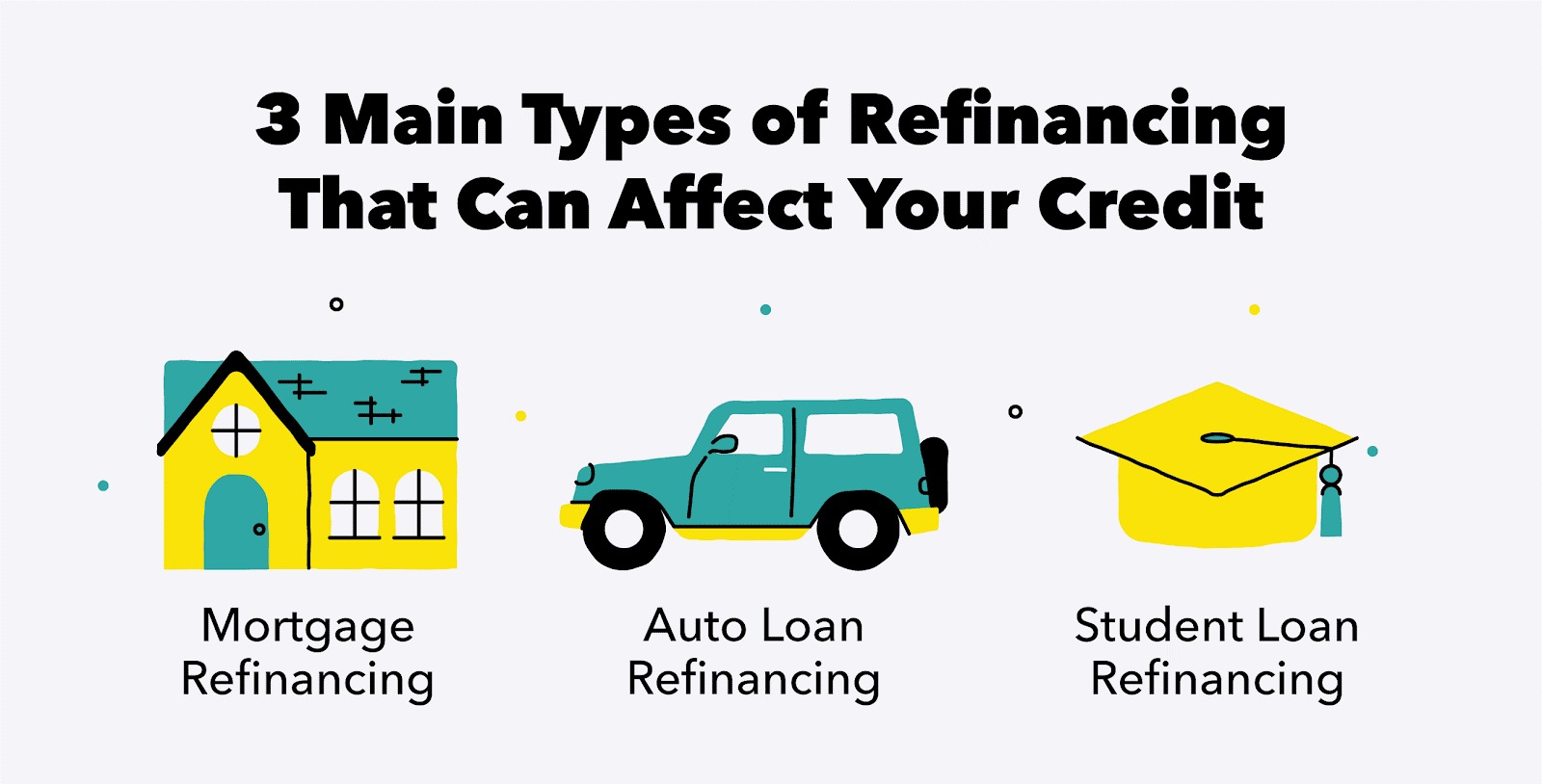Home>Finance>How Many Points Does Your Credit Drop When Applying For A Car Loan


Finance
How Many Points Does Your Credit Drop When Applying For A Car Loan
Published: January 8, 2024
Planning to finance a car purchase? Find out how many points your credit score may drop when applying for a car loan and ensure you're prepared.
(Many of the links in this article redirect to a specific reviewed product. Your purchase of these products through affiliate links helps to generate commission for LiveWell, at no extra cost. Learn more)
Table of Contents
Introduction
When it comes to financing a car purchase, many individuals rely on car loans to make it possible. However, one concern that often arises is how applying for a car loan may impact their credit score. Your credit score is a crucial factor that lenders consider when determining your eligibility and interest rate for a loan.
In this article, we will explore the factors that affect your credit score, the impact of applying for a car loan on your credit score, and provide tips on how to minimize the potential negative effects.
Understanding how credit inquiries, such as car loan applications, can affect your credit score is essential for making informed financial decisions. By being aware of the potential impact and taking steps to mitigate any negative effects, you can navigate the car loan process with confidence.
So, let’s dive into the details and gain a better understanding of how many points your credit score may drop when applying for a car loan and how to minimize this impact.
Factors Affecting Credit Score
Your credit score is a numerical representation of your creditworthiness and is determined by several factors. Understanding these factors is crucial for comprehending how applying for a car loan can impact your credit score.
1. Payment History: This factor carries significant weight in determining your credit score. It reflects whether you have consistently made on-time payments for your debts, such as credit card bills, mortgage payments, and previous car loans.
2. Credit Utilization: This refers to the percentage of your available credit that you are currently using. Keeping your credit utilization low is essential for maintaining a healthy credit score. Ideally, it is recommended to keep your credit utilization below 30%.
3. Credit History Length: The length of your credit history also plays a role in determining your credit score. Lenders view a longer credit history positively, as it offers more data to assess your creditworthiness.
4. Credit Mix: A diverse mix of credit accounts, such as credit cards, loans, and mortgages, can contribute positively to your credit score. It indicates that you can manage multiple types of credit responsibly.
5. Credit Inquiries: When you apply for credit, including car loans, it results in a credit inquiry. These inquiries can be either soft or hard. A soft inquiry, like checking your own credit score, doesn’t affect your credit score. On the other hand, a hard inquiry, such as applying for a car loan, can have a temporary impact on your credit score.
Understanding these factors is important because they lay the foundation for comprehending how applying for a car loan can affect your credit score. By maintaining good payment habits, managing your credit utilization, and diversifying your credit mix, you can build and maintain a healthy credit score.
Understanding Credit Inquiries
Before delving into the impact of applying for a car loan on your credit score, it’s essential to understand credit inquiries. A credit inquiry occurs when a lender or financial institution requests access to your credit report to assess your creditworthiness.
There are two types of credit inquiries: soft inquiries and hard inquiries.
Soft Inquiries: Soft inquiries occur when you check your own credit score or when a lender or credit card company preapproves you for an offer. Soft inquiries do not impact your credit score and are not visible to other lenders when they review your credit report.
Hard Inquiries: Hard inquiries occur when you apply for new credit, such as a car loan, credit card, or mortgage. These inquiries are initiated by a lender and can have a temporary impact on your credit score. Each hard inquiry can result in a small, temporary decrease in your credit score.
It is important to note that multiple hard inquiries within a short period of time, typically within a 14 to 45-day window, are treated as a single inquiry by credit scoring models. This allows individuals to shop around for the best rate on a car loan without excessively penalizing their credit score.
Now that we have a better understanding of credit inquiries, let’s explore how applying for a car loan specifically can impact your credit score.
Impact of Applying for a Car Loan on Credit Score
Applying for a car loan can have both positive and negative effects on your credit score. Understanding these impacts will help you make informed decisions when seeking financing for your car purchase.
1. Temporary Decrease in Credit Score: When you apply for a car loan, it triggers a hard inquiry on your credit report. This hard inquiry can cause a temporary decrease in your credit score, typically by a few points. However, the impact is usually minimal and short-lived.
2. Credit Mix Diversification: Adding a car loan to your credit mix can have a positive impact on your credit score. It demonstrates your ability to manage different types of credit and shows lenders that you can handle installment loans responsibly.
3. Increase in Credit Utilization: Taking on a new car loan will increase your overall debt, which can impact your credit utilization ratio. If your credit utilization ratio increases significantly, it may negatively affect your credit score. It is important to manage your overall debt to maintain a healthy credit utilization ratio.
4. Improved Payment History: Making timely payments on your car loan can positively impact your credit score. Your payment history is the most critical factor in determining your creditworthiness, and consistent on-time payments will demonstrate financial responsibility to lenders.
Overall, while applying for a car loan may initially cause a slight dip in your credit score, the long-term impact depends on how responsibly you manage the loan. By making timely payments and maintaining a healthy credit mix, you can mitigate any negative effects and potentially improve your credit score in the process.
Furthermore, it is important to note that every individual’s credit profile is unique, and the specific impact on their credit score may vary.
Importance of Shopping for the Best Rate
When it comes to financing a car purchase, shopping for the best interest rate is crucial. Not only does it help you secure a loan that fits your budget, but it can also have a positive impact on your credit score.
Here’s why shopping around for the best rate is essential:
1. Cost Savings: By comparing different lenders and their interest rates, you have the opportunity to save money over the life of your car loan. Even a small difference in interest rates can result in significant savings on monthly payments and overall loan costs.
2. Budget Management: Finding a loan with a favorable interest rate can help you manage your monthly budget more effectively. Lower interest rates mean lower monthly payments, allowing you to allocate your finances towards other important expenses.
3. Credit Score Impact: When you shop for a car loan, multiple lenders may perform hard inquiries on your credit. As mentioned earlier, multiple hard inquiries within a short timeframe are treated as a single inquiry by credit scoring models. This means that your credit score will only be minimally affected as long as you complete your rate shopping within a specific period, typically 14-45 days.
By ensuring that your rate shopping window is within this timeframe, you can explore different lenders without worrying about significant damage to your credit score.
Remember, the key is to be proactive and research various lenders, compare their rates, terms, and overall loan costs. Utilize online tools and resources, such as loan comparison websites, to simplify the process and obtain multiple quotes.
By taking the time to shop for the best rate, you can not only save money but also minimize the impact on your credit score, allowing you to make a well-informed decision when choosing a car loan.
How Long Does the Credit Score Impact Last?
After applying for a car loan, you may wonder how long the impact will last on your credit score. The good news is that any negative impact is typically temporary and will gradually diminish over time.
The exact duration of the credit score impact can vary depending on various factors, including your overall credit history and how you manage the new car loan. Here are some key points to consider:
1. Hard Inquiries: When you apply for a car loan, the hard inquiry will remain on your credit report for about two years. However, its impact on your credit score is most significant within the first few months. As time passes, the impact of the inquiry lessens, and your credit score can start to recover.
2. Credit Utilization: Taking on a new car loan can temporarily increase your credit utilization, which is the percentage of your available credit that you are currently using. This increase in utilization can impact your credit score, especially if it pushes you closer to your credit limit. However, as you make timely payments and reduce the outstanding balance on the loan, your credit utilization will improve, positively impacting your credit score over time.
3. Payment History: Your payment history on the new car loan will continue to be a factor in your credit score calculation. Making timely payments can improve your credit score over time, while late or missed payments can have a negative impact.
It’s important to note that the impact of applying for a car loan on your credit score is generally temporary and will eventually fade away. With responsible credit management and by maintaining good payment habits, you can see your credit score recover and potentially even improve beyond its previous level.
Keep in mind that every individual’s credit profile is unique, and the duration of the credit score impact may vary depending on individual circumstances. However, with proper financial management, the impact should be manageable and should not hinder your ability to secure credit in the future.
Tips for Minimizing Credit Score Impact when Applying for a Car Loan
While applying for a car loan may cause a temporary dip in your credit score, there are steps you can take to minimize the impact. By following these tips, you can navigate the car loan process while mitigating any potential negative effects on your credit score:
1. Limit Rate Shopping Window: When shopping for a car loan, try to complete your rate comparisons within a 14 to 45-day window. Multiple inquiries within this timeframe are typically treated as a single inquiry by credit scoring models, minimizing the impact on your credit score.
2. Research and Compare Lenders: Take the time to research and compare different lenders to find the best loan terms and interest rates. Research reputable lenders, read reviews, and compare loan offers to ensure you are getting the most favorable terms possible.
3. Check for Pre-Qualification: Some lenders offer pre-qualification processes that allow you to get an estimate of the loan terms without a hard inquiry. This helps you gauge your eligibility and potential interest rates without affecting your credit score.
4. Make Timely Payments: Once you secure a car loan, it is crucial to make timely payments. Consistently paying your monthly installments on time will help build a positive payment history and offset any temporary negative impact on your credit score.
5. Keep Credit Utilization in Check: Even though a car loan increases your overall debt, it’s important to maintain a healthy credit utilization ratio. Aim to keep your credit utilization below 30% by managing your other debts and not maxing out your credit cards.
6. Monitor your Credit Report: Regularly monitor your credit report to ensure accuracy and identify any potential errors or discrepancies. Addressing these issues promptly can help maintain the integrity of your credit score.
By following these tips, you can navigate the car loan process strategically and minimize the impact on your credit score. Remember, responsible credit management is crucial to maintaining a healthy credit profile and securing favorable loan terms in the future.
Conclusion
Applying for a car loan can have an impact on your credit score, but it doesn’t have to be a cause for concern. By understanding how credit inquiries and various factors affect your credit score, you can take steps to minimize the impact and even potentially improve your creditworthiness.
Factors like payment history, credit utilization, credit mix, and credit inquiries play a role in determining your credit score. While applying for a car loan may result in a temporary decrease in your credit score due to a hard inquiry, managing the loan responsibly by making timely payments can have a positive impact in the long run.
When shopping for a car loan, remember to compare rates from different lenders to ensure you secure the best deal. By doing so within a specific time frame, you can minimize the impact of multiple hard inquiries on your credit score.
Maintaining a healthy credit utilization ratio and monitoring your payment history will further contribute to maintaining a positive credit score. Taking these proactive steps will help you not only secure favorable loan terms for your car purchase but also pave the way for future financial opportunities.
Ultimately, with responsible financial management, applying for a car loan can be a beneficial experience. By understanding the factors at play, shopping for the best rate, and taking measures to minimize the impact, you can confidently navigate the car loan process while safeguarding your credit score.
Remember, your credit score is a reflection of your financial responsibility and plays a significant role in your overall financial well-being. By making informed decisions and implementing good credit habits, you can maintain a healthy credit profile and achieve your financial goals.














